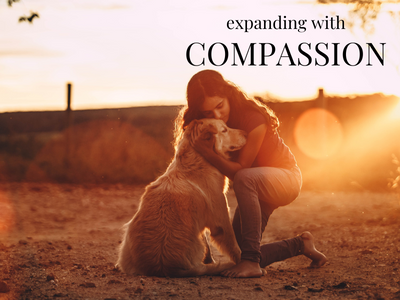Karuna or Compassion rises when Metta or Unconditional Loving Kindness meets Suffering.
Compassion and empathy are different emotions. And they carry different energies. One can lead to burnout, the other can only lead to expansion and lightness.
Research has shown that the parts of the brain that light up when a person experiences compassion are similar to when someone experiences positive emotions such as maternal love or affiliation. Empathy, on the other hand, lights up parts associated with pain.
Empathy demands that we walk in the other person’s shoes. It can lead to a deep connection and understanding. But it can also lead to feelings of helplessness and powerlessness.
Compassion asks us to accept the limitedness of our abilities and resources. It invites us to pay close attention to the sentience of the person who is suffering, so we can see them beyond their suffering, and experience them as they experience themselves. I understood this when I volunteered with garbage collectors. Before, I would feel sorry that they were doing such a hard and thankless job. But when I worked with them, I found they were proud of their work. They had good relations with the people they collected garbage from, and they were happy in their lives and occupation. It was an eye-opener and a humbling realisation for me.
Compassion requires us to stop projecting our judgements, diagnosis and interpretations on the other. People’s suffering is not their identity. To observe and appreciate this, we need some stillness within ourselves.
Compassion requires us to meet suffering with unconditional loving kindness and to support in whatever ways we can – in actions, words or thoughts – while acknowledging the uncountable causes of suffering, causes that we have no control over. And even if we do, we cannot control another person’s choices, circumstances or response to life.
What we can do with all our hearts is honour their existence, listen with care and attention, and offer what support we can.

